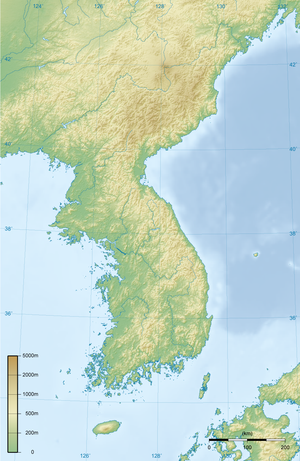The South Korean economy has been sputtering of late. Economic growth slowed to 2% in 2012, falling from a more robust 3.7% in the previous year. Important sectors such as construction and exports have weakened sharply and there is significant pressure on Korea’s new president Park Geun-hye to stimulate the economy. Though this slowdown has, in part, coincided with increased political tensions on the Korea peninsula, it would be a mistake to attribute the South’s economic woes to the recent North-South developments.
To start, the economic slowdown preceded the recent crisis and signs of weakening were evident early last year. The current North-South tensions ignited after North Korea conducted its third underground nuclear test on February 12th. Despite some of the most bellicose rhetoric in decades from the North, most macro-economic indicators show little panic in the South’s economy. The KRX 100 is actually up since the test and yields on 10-year bonds have dropped from 3.04 to 2.81 (not indicative of a government about to rack up debt in a war).
The main macro-economic indicator that has slipped in recent weeks is the currency with the Korean won weakening against the dollar. However, this movement has been well under a quarter of a percent and is more likely attributed to macro-economic conditions than political developments. In particular efforts by Ms. Park’s government to stimulate the economy, such as a new plan to improve the housing market, will likely put downward pressure on the won.
This raises an obvious question of why more economic distress hasn’t been detected given the extremely high level of political tension. There are a few explanations for this phenomenon, but most center on the idea that markets are not taking the North’s new act very seriously. Most analysts agree that recent statements threatening military strikes against the U.S. and South Korea are being issued primarily for domestic consumption. Kim Jung Un, the North’s new leader is young and untested and likely feels threatened by a military establishment with little faith in him. While aggressive statements and weapons tests might shore up his domestic support, it is unlikely that a wide scale military confrontation would have positive repercussions for him.
The North is more likely to engage in cyber attacks of the type witnessed last week or limited shelling on sparsely populated costal islands that would require a low level response from the South. The situation is certainly worth monitoring and there is no guarantee that miscommunication or misunderstood intentions will not ignite a broader conflict. However, South Korean investors are politically savvy and the South has dealt with a prickly northern neighbor for decades. In the short run, there doesn’t appear any reason to panic or assume that political tensions will sink the Korea economy.











